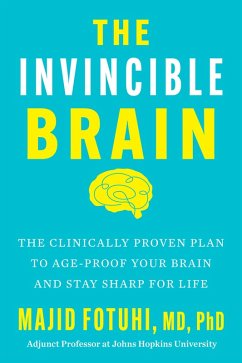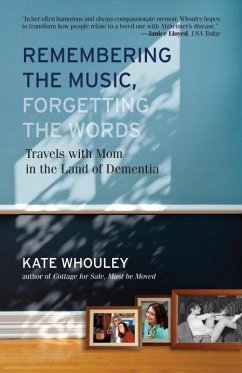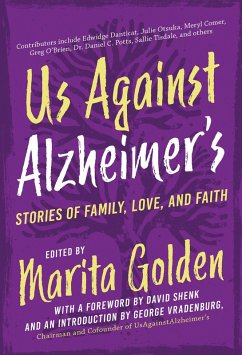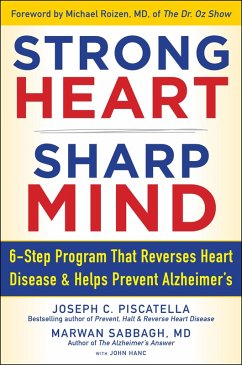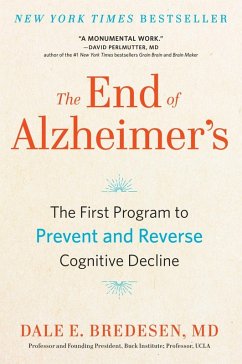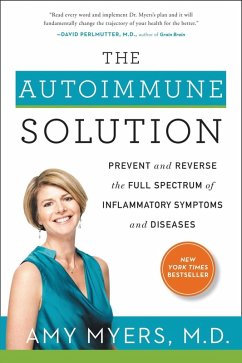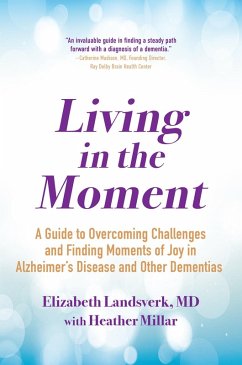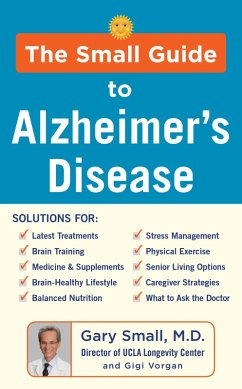
Mayo Clinic on Alzheimer's Disease and Other Dementias, Revised and Updated (eBook, ePUB)
A guide for people with dementia and those who care for them
Versandkostenfrei!
Sofort per Download lieferbar
12,95 €
inkl. MwSt.
Weitere Ausgaben:

PAYBACK Punkte
6 °P sammeln!
Help to prevent, slow, and understand Alzheimer's Disease and other Dementias with this guide from the experts at Mayo Clinic. This essential resource includes key information about the latest advancements in diagnosis and treatment, as well as factors that may affect your cognitive health. Dementia is a serious health challenge with over 55 million people diagnosed worldwide, and some estimates expect that number to more than double by 2050. While Alzheimer's disease is the most common type of dementia, other types also affect adults worldwide, causing loss of cognitive functions such as memo...
Help to prevent, slow, and understand Alzheimer's Disease and other Dementias with this guide from the experts at Mayo Clinic. This essential resource includes key information about the latest advancements in diagnosis and treatment, as well as factors that may affect your cognitive health. Dementia is a serious health challenge with over 55 million people diagnosed worldwide, and some estimates expect that number to more than double by 2050. While Alzheimer's disease is the most common type of dementia, other types also affect adults worldwide, causing loss of cognitive functions such as memory, reasoning and judgment. The diseases that cause dementia have long been considered difficult and unrelenting, but recent advances offer hope. In this fully revised and updated third edition of Mayo Clinic's on Alzheimer's Disease and Other Dementias leading experts at Mayo Clinic answer patients and caregivers' most pressing questions, including:
- Are there ways you can lower your risk of Alzheimer's Disease and other dementias? Can they be prevented?
- Can you live well with dementia? If so, how?
- How do sleeplessness, hearing loss, social isolation, and other risk factors contribute to cognitive decline?
- How can exercise and healthy foods preserve brain function?
- What are the neurological changes that can occur in the brain, and how is normal aging different from aging with dementia?
- How are blood and genetic biomarker tests breaking new ground in diagnosing dementia?
- Why is it increasingly important to identify dementia in its early stages?
- What are the unique signs and symptoms of Lewy body dementia, frontotemporal degeneration, vascular cognitive impairment, and other dementias?
- What are the stages of Alzheimer's disease?
- Can new and emerging medications slow the progression of Alzheimer's disease?
- What day-to-day coping strategies can help people live well with dementia?
- How can caregivers care for themselves?
Dieser Download kann aus rechtlichen Gründen nur mit Rechnungsadresse in A, D ausgeliefert werden.





